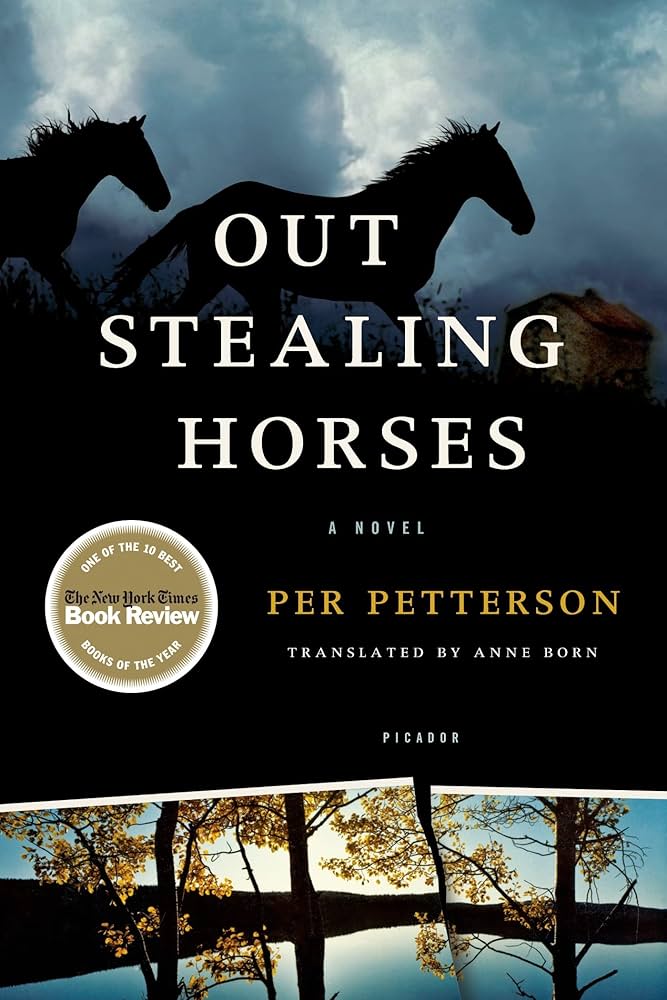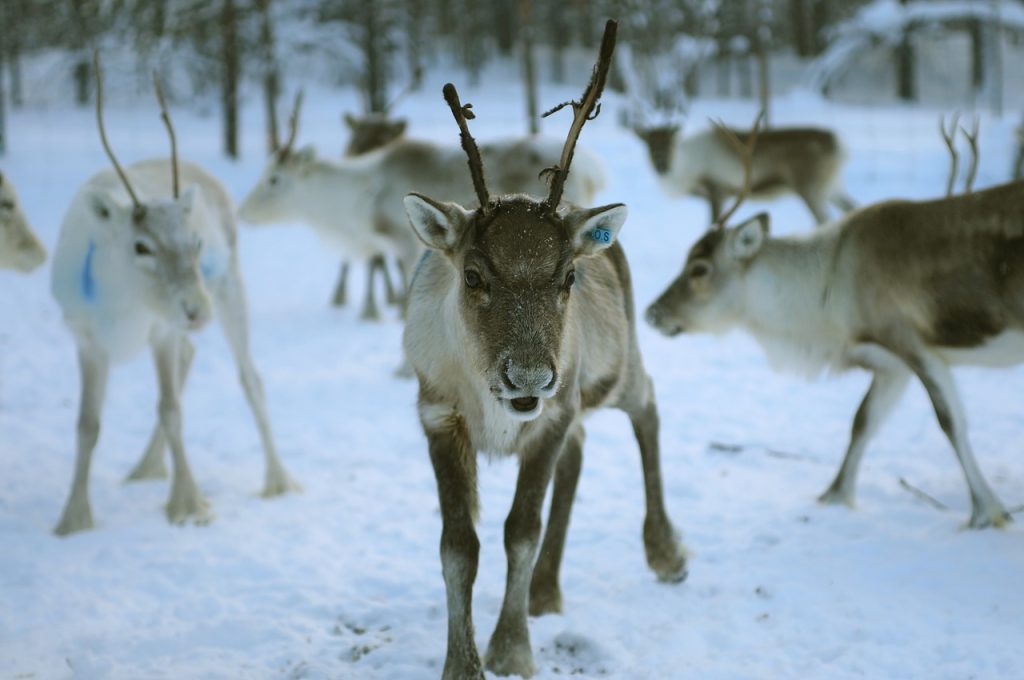We decide for ourselves when it will hurt
Read it already? Check out my other suggestions for Norway!
Out Stealing Horses by Per Petterson is a novel about memory, solitude, and how one summer can change a life. This novel had been on my list for a while after seeing a friend read it years ago. I knew nothing about the plot, and I’m not sure what I expected, but I certainly didn’t anticipate the gut punch I got from this book.
If I just concentrate I can walk into memory’s store
and find the right shelf with the right film and disappear into it
The story follows 67-year-old Trond, who has chosen to live his last years in a remote cabin in the woods, accompanied only by his spoiled but obedient dog. Surrounded by nature and far from other people, he finds peace—until memories from his teenage years resurface, memories he has spent a lifetime avoiding. Because, as he says, “You decide for yourself when it will hurt.”
So along with Trond we are transported back to the summer of 1948, when he was 15 and lived with his father in a rural cabin near the Glomma River. Their simple life was filled with comfortable togetherness, hard work, and the thrill of “stealing horses” — Trond sneaking off with his friend Jon to ride the rich farmer’s horses without permission.

The novel shifts back and forth between past and present without warning, mirroring the way memories surface in real life: uninvited, vivid, and triggered by a smell, a sound, or nothing at all. As the story spirals through the events of that summer, Trond must confront truths he would rather forget. It’s like watching someone carefully piece together a puzzle, and some of those pieces are very painful to touch.
Because tragedy strikes that summer, driving a wedge between Trond and Jon and casting a shadow over the rest of the season. It’s the summer when Trond realizes that adult life is complicated, painful, and full of consequences he cannot yet understand. He also learns pieces of his father’s role in the Norwegian resistance during WWII, though I can’t reveal more without spoiling the plot. What I can say is that the father Trond idolized becomes a far more complicated figure, leaving Trond with a lifetime of unanswered questions.
‘I’m sorry I laughed… I know it isn’t funny for you.
It was incredibly stupid of me to laugh. Does it hurt a lot anywhere?’
‘Not really,’ I said.
‘Only a bit in your soul?’
‘Maybe a bit.’
‘Let it sink,’ he said. ‘Just leave it. You can’t use it for anything.’
In the present day, Trond’s solitude is broken only by his neighbour Lars, who has a distinctly un-obedient dog and an unexpected connection to Trond’s past. The wonderfully awkward interactions of these two old men in the woods was one of the highlights for me. Few words are exchanged, but the unspoken is deafening in this book.
Nature and weather also intrude upon Trond’s quiet life. The Norwegian weather is almost a character itself in this novel, with its unpredictable changes mirroring the emotional storms of the characters. Petterson’s descriptions are so vivid, you can feel the rain on your skin and hear the howling snowstorm. It’s as though nature insists on Trond confronting what he’d rather leave behind.

The novel was adapted into a movie, which I didn’t know beforehand. I haven’t watched it, but I definitely do see the cinematic quality of Out Stealing Horses.
This is a story that moves at its own pace, requiring a contemplative mood to appreciate its deliberate unfolding. Much of it feels very slow — I now know more about hay-stacking, woodcutting, and timber floating than I ever expected — but the pivotal moments of 1948 and WWII grab you by the heart and don’t let go.
Out stealing horses will stay with you long after you’ve read it. And no, I don’t think you decide for yourself when it will hurt.
Join me again on Tuesday, when we move on to Finland!




